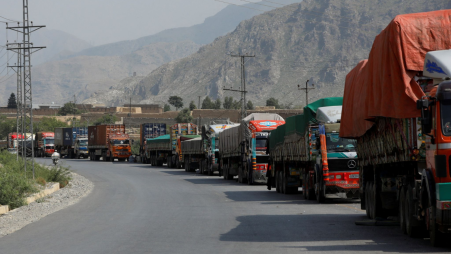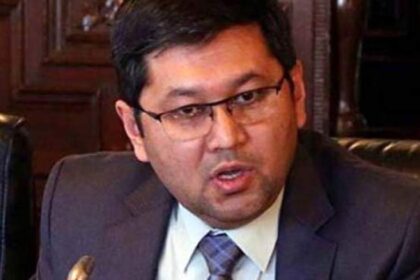RASC News Agency: Since their return to power, the Taliban have transformed Afghanistan’s highways into organized extortion hubs, prioritizing oppression and plunder over governance and public welfare. Reports indicate that the group systematically extorts traders, drivers, and passengers under the guise of “taxes,” “ushr,” and “zakat.” This widespread financial exploitation has severely impacted the economy, discouraging trade and investment while increasing the economic burden on ordinary citizens. Strategic highways such as Kabul-Herat, Kabul-Mazar-i-Sharif, and Kabul-Kandahar have become Taliban-controlled extortion checkpoints. Armed militants have established roadblocks along these routes, where they demand large sums of money under the pretext of “Islamic taxation” from every passing vehicle.
A major food trader, speaking to RASC News Agency on the condition of anonymity for fear of retribution, revealed: “Every time my shipment passes through the Kabul-Kandahar highway, the Taliban extort at least 50,000 kabuli rupees from me. If I refuse, they seize my truck and goods, and my driver is beaten.” Reports confirm that there is no fixed extortion rate; the demanded amount varies depending on the type of goods, the volume of the shipment, and even the financial status of the targeted individual. In numerous cases, Taliban militants have demanded sums exceeding the actual value of the transported goods, and upon resistance, they confiscate shipments and imprison drivers.
Those who refuse to comply face brutal repression and torture. Multiple reports document instances where drivers and traders were publicly beaten for failing to pay, and in some cases, executed extrajudicially. A freight driver, who has personally experienced such mistreatment, told RASC News Agency: “A few weeks ago, while traveling on the Kabul-Mazar route, the Taliban demanded 20,000 kabuli rupees. When I said I couldn’t afford it, they dragged me from my truck and beat me severely before seizing my vehicle.” This systematic extortion has instilled fear and distrust among traders, significantly hindering business operations and discouraging investment. Beyond looting travelers on highways, the Taliban are systematically pillaging the country’s economic resources, channeling illicit revenues into funding their terrorist networks.
An economic expert in Kabul, speaking to RASC News Agency, warned: “Afghanistan, under Taliban rule, has become a mafia-driven economy, where national revenues are funneled into terrorist groups and ethnic warlords instead of being allocated for public services.” Experts caution that if this situation continues unchecked, Afghanistan will plunge into an even deeper economic crisis. The ongoing extortion and insecurity are forcing investors and business owners to flee the country, pushing the nation’s economy toward an unprecedented recession. Despite overwhelming reports of Taliban-led looting, repression, and human rights violations, the international community has yet to take effective action against the group. While global organizations have repeatedly called for accountability, the lack of concrete measures has emboldened the Taliban to continue their campaign of plunder, oppression, and violence with complete impunity.
As Afghanistan’s highways transform into corridors of death and destruction, the Taliban’s grip on extortion and brutality tightens daily. If left unchallenged, this regime will not only collapse the Afghanistan economy but will also leave millions more at the mercy of lawlessness and systematic oppression.






